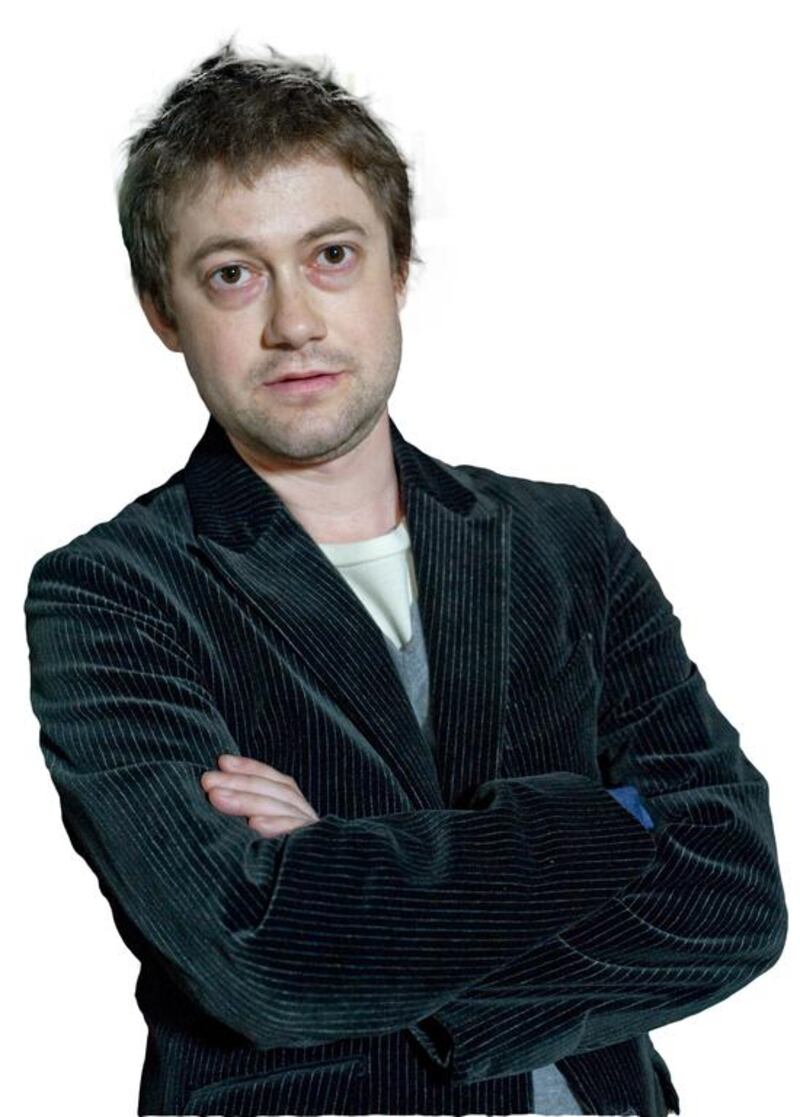There is an oft-quoted anecdote from Martin Amis about how his father Kingsley sent Martin's novel Money "windmilling through the air" at the point where "Martin Amis" appears as a character. I reacted in a similar way – at least figuratively – while reading Adam Thirlwell's 2003 debut novel Politics. After about a 100 pages, I decided I had suffered enough.
Granta included Thirlwell on its Best of Young British Novelists list on the strength of the manuscript of Politics, making him hot literary property before the book was in stores. Inevitably, this aroused jealous sniping and charges of annoying precocity. But precocity is early talent, something I couldn't see in that smirking, grating, juvenile, over-egged and woefully unfunny debut.
Could Thirlwell's latest novel, Lurid & Cute, win me round? Two sentences in and it doesn't bode well. Our unnamed protagonist wakes up in a hotel room in an unnamed city and surveys the paintings on the wall: "Jesus was standing on his halo beside a very bright Madonna – I mean the religious kind, not the disco version." Several pages later we encounter one of Thirlwell's customary banal disclosures: "The colour of my juice was orange."
But then something curious happens: it becomes engrossing. Fiendish wit replaces groan-inducing gags. The arch narrator turns vulnerable. Thirlwell’s character explains he is giving us the “story of my moral life” and then proceeds to take the bleeding and unconscious woman he has woken up next to out of the hotel without the maid or manager seeing.
The woman is his lover, Romy. As she is attended to in hospital, our hero returns home to his wife, Candy, his parents and his dog, all of whom live under the same roof. He informs us that he has graduated from cosseted, “hypereducated” child prodigy to a young adult so “dazed by reality” that he must shun it. He quits his job “to pursue my dream of art” but ends up frittering away his father’s handouts and living like a “deviant dauphin”. This entails ketamine-fuelled exploits with best friend Hiro, frequent liaisons and a self-replenishing stock of lies and stratagems. Where once he was worried at the discovery of the “kink in my soul”, he is now steered by it.
After the riotous opener in the hotel room, Thirlwell entertains with three main set pieces – an orgy, a trip to a sauna and several sprees with firearms. Linking and embroidering each event are the protagonist’s clotted thoughts, dilemmas and neuroses. He tells us at the outset that he thinks and analyses too much, and while such pondering should by rights stymie the novel’s momentum, it ends up turbocharging it. Philosophical musings rub shoulders with guilt about his infidelity and doubt as to whether he has settled down with the right girl. He deliberates over living a lurid life or an ordinary one, choosing love or lust, happiness or truth, reality or fantasy, and in the end goes out to seize and sample all – but with catastrophic consequences.
Like Thirlwell’s others, this is a novel that is thin on plot but big on ideas and language. We get the same forays into eroticism and the same emphasis on “offness and bizarrerie”; however, this time round Thirlwell’s exuberance is more contained, his verbal trickery less forced. Granted, he still trots out wearying puns (Candy tells her husband that his problems are no so much psychosomatic as psychosemitic) but in the main his prose fizzes, and at times challenges.
Significantly, Thirlwell has also learnt how and when to rein in the hysterics. At one juncture the character’s teeming thoughts dissolve: “My mind just went blank – like the way the wheels on a suitcase go suddenly softly silent when they move from the sidewalk’s tarmac onto lavish hotel carpet.” In short, Thirlwell has downsized from being clever-clever to just clever, and the new approach does him considerable favours.
I don't need to revisit Thirlwell's previous books any time soon but Lurid & Cute is strong enough to make admirers out of detractors. As his character says: "Transformations, it turns out, are possible."
This book is available on Amazon.
Malcolm Forbes is a regular contributor to The Review.
thereview@thenational.ae






